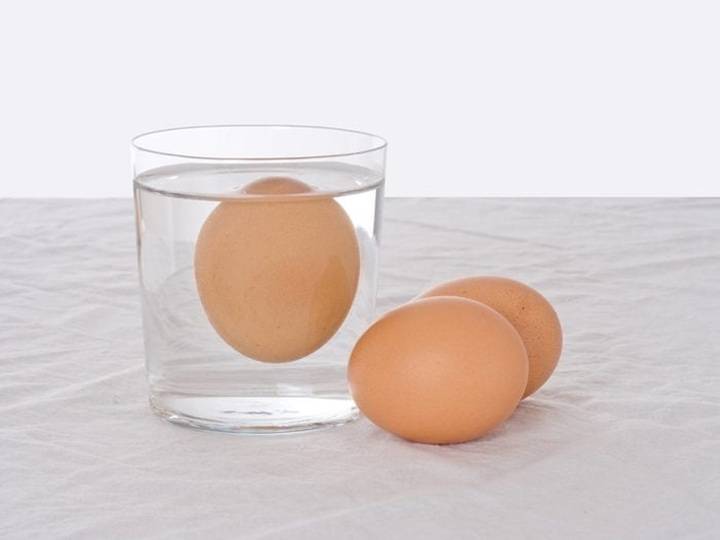
How to Tell if Eggs are Bad: Easy Ways to Test Egg Freshness at Home
how to tell if eggs are bad Eggs are a pantry staple. They’re scrambled for breakfast and baked into cakes, getting daily use. What do you do, though, if you stumble upon a carton in your refrigerator and have no idea how long it’s been there? Not knowing how to determine if eggs are bad is not only a food safety problem but also a cooking convenience problem.
In this handy and accessible book, you’ll learn how to test a bad egg with simple tests, what to watch out for, and exactly how long eggs really do last. We’ll also dispel some common egg myths, address your most frequently asked questions, and demonstrate how to cut down on waste without affecting your health.
Let’s crack on with this (intended pun).
Why It Matters to Know If Eggs Are Bad
Eggs seem harmless. But when they go bad, they can carry harmful bacteria like Salmonella. That can cause food poisoning. One rotten egg may lead to nausea and stomach pain. It can even cause worse problems. So, testing eggs for freshness is important. The good news is eggs don’t spoil fast. There are also easy ways to check if they are still fresh.
How Long Do Eggs Last?

Eggs really do have a pretty long shelf life for as many foods don’t. But it’s highly dependent upon how they are stored.
| Storage Method | How Long They Last |
| In the refrigerator (raw) | 3 to 5 weeks after purchase |
| In the fridge (hard-boiled) | Up to 1 week |
| In the freezer (raw yolks/whites, separated) | Up to 12 months |
| Room temperature (raw) | A few hours (not recommended) |
Store your eggs in the refrigerator at all times, and don’t rely on the “sell by” date exclusively. Eggs are generally still safe weeks after the packaging date if they’ve been stored properly.
1. The Water Test (Also Known as the Float Test)
One of the most straightforward and popular at-home tests for checking whether an egg is still fresh.
How It Works:
- Put a bowl or glass in the fridge with some cold water.
- Gently put your egg into the water.
- See what the egg does.
| What You See | What It Means |
| Egg lies flat at bottom | Extremely fresh |
| Egg tilts to one side but still touches bottom | Minor older |
| Egg floats to top | Bad egg – discard |
Why would it float?
Eggs develop a bigger air pocket as they get older. The more air, the lighter and more buoyant the egg will be the float.
2. The Sniff Test
Your nose knows! This one is easy and fast.
How To Do It:
- Gently crack the egg into a clean bowl.
- Smell it right away.
What to Look For:
- Good egg: No strong odor. Maybe a bit of natural smell.
- Bad egg: Sulfur- or rotting-smelling something’s died in there. This is a sure indication of spoilage.
Important: Even if the egg looks okay, a bad smell indicates that it is not safe to eat. Trust your nose.
3. Visual Inspection
Occasionally your eyes can pick up what your nose and hands can’t.
Look for These Signs:
- Leaks or cracks: Bacteria can enter leaks.
- Powdery shell: Possible mold.
- Slimy shell: Possible mold or bacteria.
- Other discoloration that isn’t normal inside the egg. Like Green, pink, or black spots on. Or either the yolk or white aren’t normal.
If it looks suspicious, don’t eat it.
4. Shake Test (Not Common)
Some swear by this old school technique, but it isn’t that reliable.
How To Do It:
- Hold the egg up to your ear.
- Gently shake it.
What You Might Hear:
- No sound: Most likely fresh.
- Sloshing sound: White and yolk have separated with age it can be old or rotten.
However, this isn’t as good as the float or smell test.
5. Candle Test (Old School but Fun)
This is an old method that’s more out of interest than practicality these days, but still enjoyable.
How It Works:
- Hold the egg in front of a candle or flashlight in a dark room.
- Attempt to see the air pocket inside the shell.
Smaller air pocket = newer egg.
Larger air pocket = older egg. This is not a sign that it’s rotten, but a sign of how old it may be.
Do Egg Carton Dates Matter?
Cartons are stamped with a Sell By, Use By or Expiration Date. It is depending on your state or country.
But here’s the thing: these dates are not absolute safety cut-offs.
In the US, the Sell By date is typically 30 days from the pack date of the eggs.
Eggs are typically still safe to eat 2–3 weeks after the date, as long as they are refrigerated.
Use the float test and smell test. And use your own judgment rather than the printed date.
How to Keep Eggs Fresh Longer
Want to make your eggs last longer? Do this:
Refrigeration Tips:
- Store eggs in their original carton (saves them from picking up fridge odors).
- Place them on a middle or lower shelf not the door, which fluctuates more in temperature.
- Don’t wash eggs before storing (you may remove their natural protective coating).
Freezing Eggs:
- Crack eggs and extract yolks and whites from the shells before freezing.
- Store in tightly sealed containers or silicone trays.
- Frozen eggs will last for up to 12 months.
Can You Eat Eggs With a Cracked Shell?
If the shell is cracked when you purchase it, don’t use it bacteria might have entered.
If cracking happens during transport or when you are personally handling it and it’s a clean break, use the egg immediately or hard cook it.
What About Eggs With a Bloody Spot?
Small blood spots on the yolk are fine. They occur naturally when the blood vessel in the egg ruptures while the egg is being formed.
You can simply spoon out the spot or cook the egg as usual.
Tip: If the egg contains multiple dark or green spots, or cloudy or colored white, discard it.
Also Read: When Calls the Heart Season 11
Signs You Should Definitely Throw the Egg Away
Here is a quick warning sign list that tells you the egg is bad:
- It floats in water
- It has a bad smell
- The shell is cracked, slimy, or moldy
- The yolk or white is discolored
- It gurgles when shaken
- There is a green ring or black spots inside
What Do You Get When You Eat a Bad Egg?

You will not notice anything at first. But a bad egg can cause food poisoning, with the following symptoms:
- Upset stomach
- Vomiting
- Diarrhea
- Fever
- Abdominal cramps
Symptoms start in 6 to 48 hours. If you feel sick after eating eggs, take it seriously. This is especially true with unfamiliar sources. See a doctor immediately.
How to Use Up Eggs Before They Go Bad
Don’t waste eggs! Use them up in these tasty ways:
- Whip up a bulk omelet or frittata
- Hard-boil a dozen to use in salads or as a snack
- Bake a batch of cookies, muffins, or pancakes
- Prepare a home-made egg salad
- Add them to French toast or custard
FAQs On How to Tell if Eggs Are Bad
How do you know if an egg has expired without cracking it open?
Use the float test. If it will float when put into cold water, it is not fresh and needs to be discarded.
Can you consume eggs beyond the best by date?
Yes! If refrigerated, they smell and float test okay. Most eggs are fine 2–3 weeks after the printed date.
How will a rotten egg smell?
It’ll have a very strong, sour, sulfur smell. That can’t be ignored. If it smells bad—don’t eat it!
Can I freeze eggs to make them last longer?
Yes! Crack and refrigerate them in airtight containers. They’ll last up to 1 year in the fridge.
Do eggs go bad faster in the fridge door?
Yes. The fridge door’s constantly changing temperature makes eggs go bad sooner. Store them on a middle or bottom shelf instead.
Inspect Your Eggs the Smart Way
Now you know exactly how to determine if eggs are bad no guessing, no worrying. how to tell if eggs are bad Do the float test as a quick test, the smell test to confirm, and look for any visual indication. Don’t throw away good eggs just because of the date on the carton. But don’t ignore warning signs either. Use caution with eggs that seem off.
This guide will help you decide with confidence. You’ll avoid food waste. You’ll stay safe. And your kitchen will run more smoothly.



